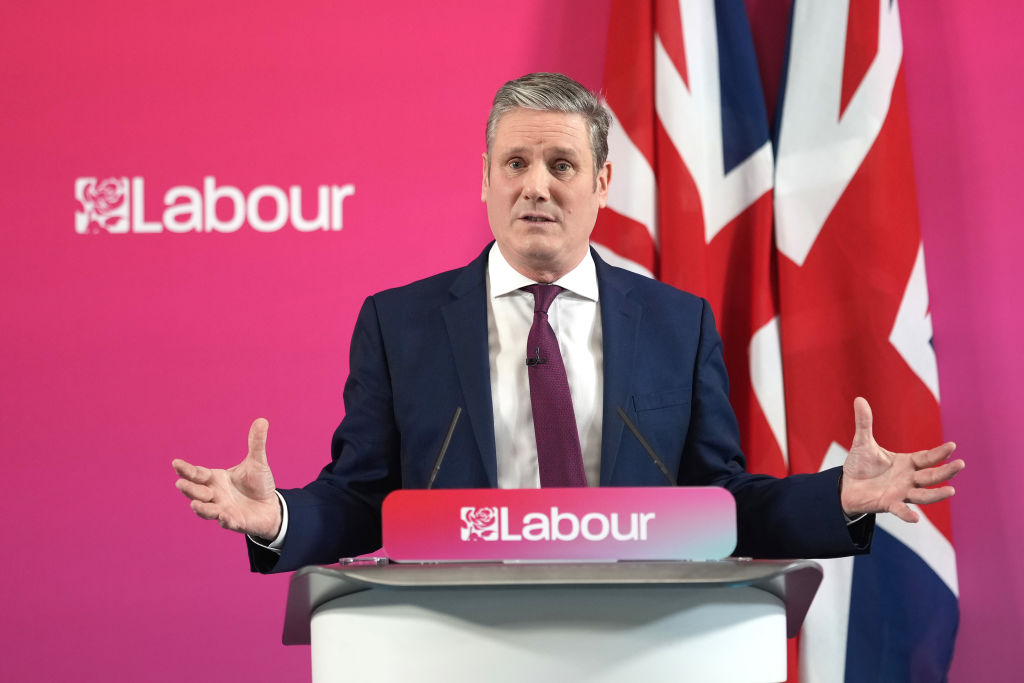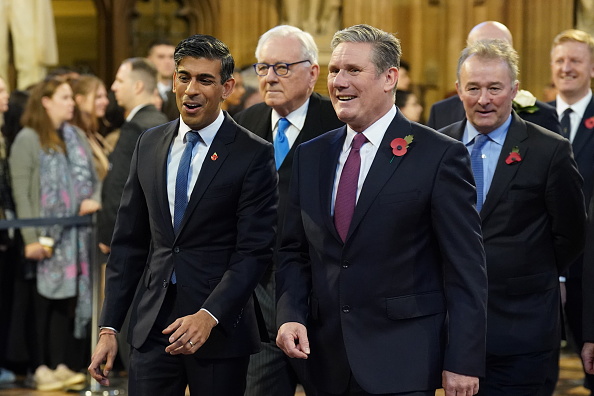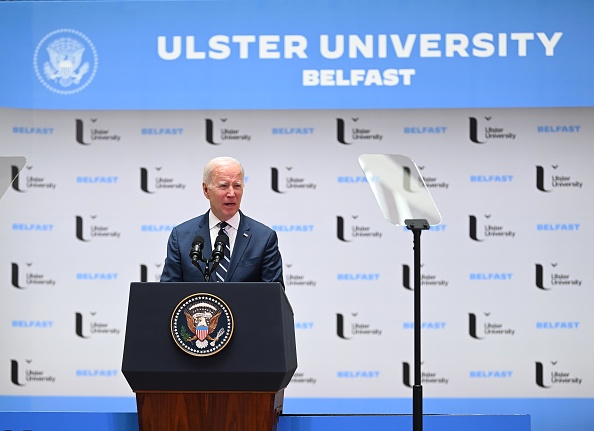Leader of the UK’s Labour Party opposition Sir Keir Starmer came under fire after being forced to deny claims he planned to re-enter a customs union with the European Union should he win the next general election in the country.
A report by the Eurasia Group, a political-risk consultancy based in New York, cited unnamed senior Labour figures as saying the party would seek “a de facto customs union by another name”, an arrangement similar to former British prime minister Theresa May’s 2019 proposal for a post-Brexit UK-EU customs-market union.
Reviving May’s plan would require unpicking subsequent trade deals with Australia and the other 10 members of the 2018 Comprehensive and Progressive Agreement for Trans-Pacific Partnership, which includes Canada, Mexico, Japan, Singapore and New Zealand.
Other parties quickly sought to take advantage of what seemed a confused Labour position on the EU to attract potential “swing voters” regarding the UK leadership vote, the exact date of which is yet to be decided but which must be held before January 28 next year.
For Scottish Nationalists, who hope to guard their 48 of 57 Scottish Parliament seats from Labour, currently on two, it was a chance to portray themselves as closer to the views of a Scotland where, in 2016, 62 per cent voted to remain in the EU.
“Labour, the hard-line Brexit party,” John Nicolson, SNP MP for Ochil & South Perthshire in central Scotland, said on X on April 9.
For Brexit-supporting parties who see Starmer’s Labour winning back working-class Northern UK and the English Midlands’ so-called “Red Wall” votes – those who backed former PM Boris Johnson’s Conservatives in 2019 – Labour’s indecisiveness on the EU represents a chance to once again wield Brexit as a wedge issue.
With Labour’s yawning polls lead over Prime Minister Rishi Sunak’s Conservatives – by some 23 per cent in an April 7 survey by Redfield & Wilton – party leaders fret the heady numbers reflect disenchantment with the ruling Tories rather than any particularly heady enthusiasm for Labour.
Its seeming indecisiveness over the EU is seen by some as an example of the possible thinness of Labour support.
Even if the party did decide to set out its stall more clearly on the customs union and single market, it faces a quandary over the EU that appears increasingly unsolvable, according to British political scientist Sir John Curtice.
First there is a predicament regarding whether Labour should to try to satisfy the preferences of its traditional core support or push more for swing voters.
On the one hand, Labour Party members now favour being in the EU more strongly than in 2016, he said.
Yet, at the same time, Labour also seeks to lure back key swing-voters who had historically supported Labour but who voted for Brexit in 2016 and Johnson’s Conservatives in 2019.
Labour thinks it is more likely to win these so-called “Stevenage Woman” votes with a message of “secure work, safe streets and a strong nation”, leaving Brexit to the side, Curtice said. The term “Stevenage Woman” profiles a suburban mother in her early 40s who is disillusioned with politics.
As if to reinforce the point, Starmer introduced the Labour Party’s new 24-page campaigning document by insisting: “How people voted in recent elections doesn’t matter to me.”
Core voters may feel deeply about Brexit but Stevenage Woman is put off just by hearing about it, according to Labour Together, an influential group formerly headed by Labour’s now lead election strategist Morgan McSweeney.
According to Curtice, even if it wanted to talk more about the UK and the EU, a biting problem for Labour is identifying any particular ways to move the UK towards a closer relationship with the single market, primarily because there is “no clear consensus on the issue in Labour’s ranks”.
A large majority of Labour members may support rejoining the bloc but, short of that, “in the case of each of our specific possible ways of softening Brexit, support stands at only around a half”, he said.
On three representative issues of food, electrical goods and an ability for young people to work and travel visa-free in Europe, rejoiners and Labour voters were asked if they preferred the UK to pursue easier trade and movement by adopting EU standards or greater UK control through setting laws and regulations regarding such in Westminster.
“For every one voter who takes the ‘soft Brexit’ position towards our three specific propositions there is another who is opposed,” said Curtice.
In September last year, Starmer said he would seek closer ties with the EU if elected. The 2026 review of Johnson’s Trade and Co-operation Agreement could offer an opportunity to do that by possibly negotiating joint standards on issues such as vehicles, food safety and financial services.
The risk of Starmer’s current Brexit policy, which could perhaps be described as “don’t ask, don’t tell”, is that it means he “has not laid the foundations needed to ensure it has the support of its voters should a future Labour government attempt to pursue a softer Brexit”, Curtice concluded.





Does Spain’s baffling Socialist affability justify a Conservative’s gamble on Labour in UK election?